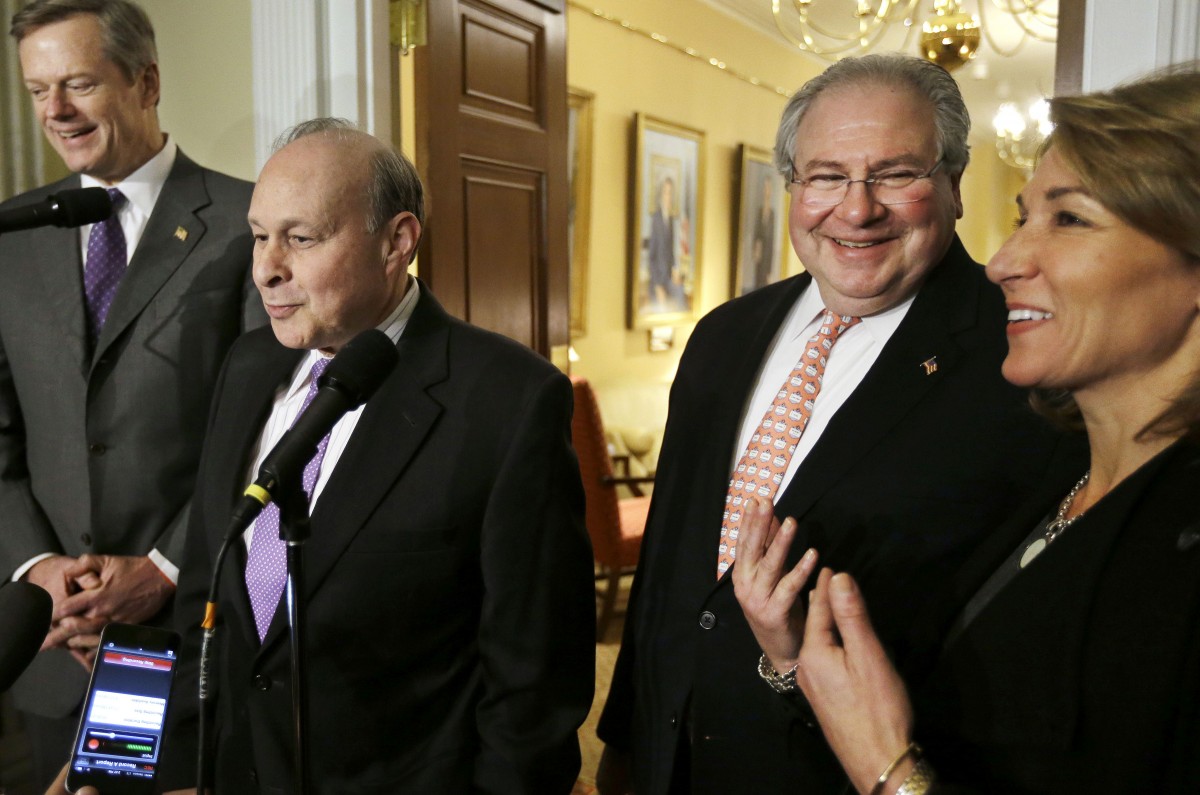Mass. Supreme Judicial Court Delivers Victory for State Senate

Photo via AP
The state’s highest court has weighed in on a Beacon Hill dispute that pitted one branch of the Massachusetts legislature against the other.
The Supreme Judicial Court ruled Monday that the Senate’s proposed changes to tax laws contained within their annual budget did not run afoul of the state’s constitution even though historically so-called “money bills” have originated in the House.
In its advisory opinion, the SJC said the Senate acted appropriately because their proposal to halt the reduction of the state income and introduce new taxes on flavored tobacco were coming on the heels of the House’s decision to include different tax policy changes, like the expansion of conservation land tax credits, in its own version of the budget.
In short, the SJC said, the House originated the “money bill” and the Senate was merely responding.
“We are of the view that the House bill was a money bill, and that the Senate did not improperly originate a money bill,” said the jointly signed decision.
The Senate, the more progressive of the two bodies, has proposed among other things an expansion of the earned income tax. Whether or not any of these proposals actually make it into the final budget that lands on Gov. Charlie Baker’s desk will be determined by a joint six-person committee made up of three members from each body. The joint budget committee will hammer out a final proposal that will then make its way through both bodies.
The ruling, signed by all seven justices and filled with Beacon Hill minutiae, is the latest happening in the procedural tension between the two traditionally chummy legislative bodies as evidenced by the statements issued in the aftermath.
“We appreciate the prompt and clear answers from the Justices of the Supreme Judicial Court in their response to the request for an advisory opinion. This opinion allows the budget conference committee to continue to work together and deliver an on time budget to the Governor,” said Senate President Stanley Rosenberg in a statement.
House Speaker Robert DeLeo was more reserved in his prepared comments.
“I thank the Supreme Judicial Court for delivering the prompt advisory opinion to the questions raised by the House. I appreciate the time and consideration the Court gave to this important matter. Work between members of the Conference Committee will proceed as we reconcile the House and Senate budgets,” said DeLeo in a statement.
The deadline for the FY 2016 budget is June 30.

